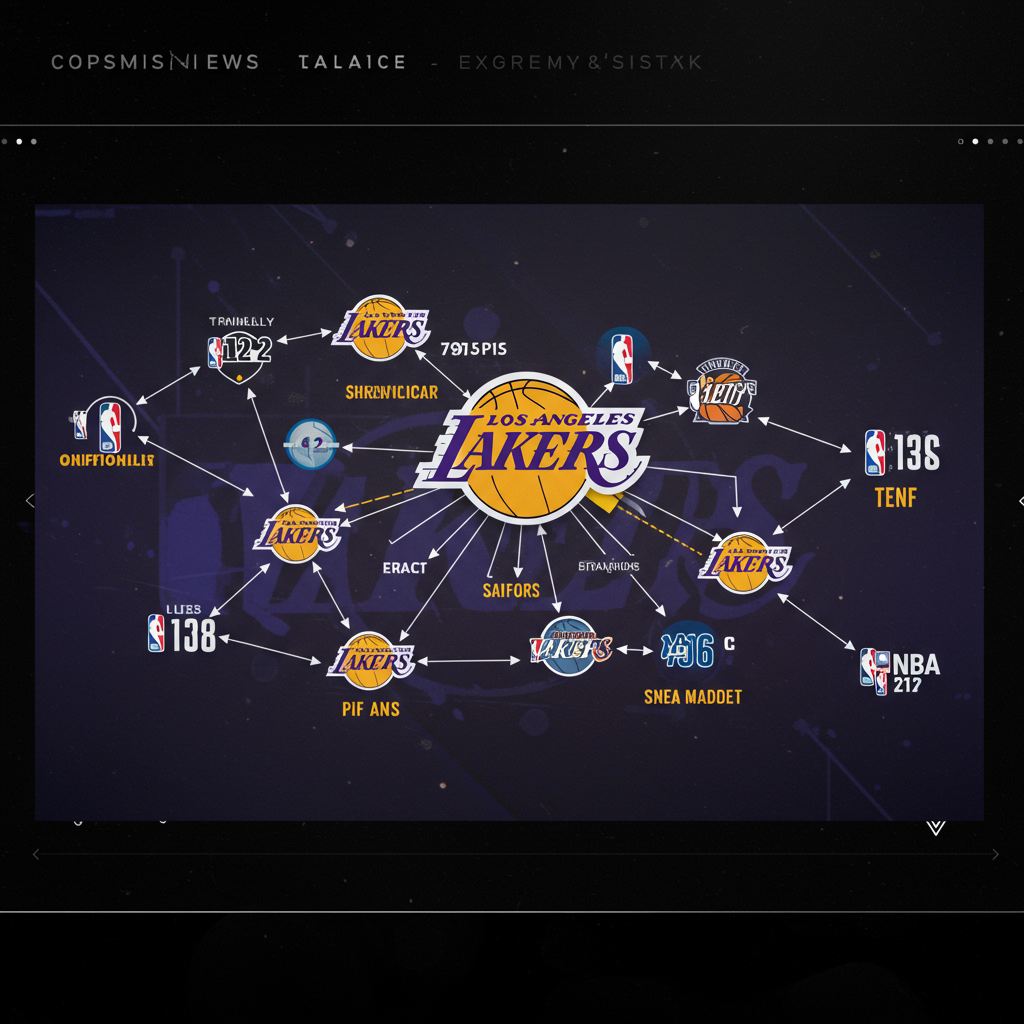Mexican boxing star Julio César Chávez Jr. was recently arrested by U.S. immigration and Customs Enforcement (ICE) agents. The detention occurred just days after his high-profile boxing match against social media personality Jake Paul in California. Authorities state that Chávez Jr. faces imminent deportation proceedings from the United States.
Federal officials provided details regarding the arrest and the serious allegations surrounding the former middleweight champion. They claim he was taken into custody in Studio City, California, on Wednesday, July 2nd. The Department of Homeland Security (DHS) confirmed the arrest and the process for his “expedited removal.” This development comes hot on the heels of his fight on June 28th in Anaheim, California.
Immigration Status and alleged Fraud
According to DHS statements, Chávez Jr.’s immigration issues stem from visa violations and purported fraudulent activity. Officials report he initially entered the U.S. legally on a B2 tourist visa in August 2023. This visa reportedly expired in February 2024. Despite the expired visa, he remained in the country.
In April 2024, Chávez Jr. applied for lawful permanent residency. This application was based on his marriage to a U.S. citizen, Frida Muñoz. However, DHS alleges that he submitted multiple fraudulent statements during this application process. This alleged fraud became a key factor leading to his current situation. U.S. Citizenship and Immigration Services (USCIS) had previously flagged Chávez Jr. in December 2024. They identified him as an “egregious public safety threat” at that time. Surprisingly, he was still granted reentry into the United States in January 2025. DHS states he was classified as “not an immigration enforcement priority” then.
Alleged Cartel Connections and Criminal History
Beyond the immigration violations, authorities have made grave accusations against Chávez Jr. They claim he possesses an active arrest warrant in Mexico dating back to March 2023. This warrant is reportedly for alleged involvement in organized crime. Specifically, it relates to trafficking firearms, ammunition, and explosives. Federal agents, speaking anonymously, have confirmed the warrant pertains to him.
DHS officials also believe Chávez Jr. is an affiliate of the notorious Sinaloa Cartel. Further deepening these allegations is his marriage connection. His wife, Frida Muñoz, is identified by authorities as being connected to the Sinaloa Cartel. She is noted as the former partner of Édgar Guzmán López. López was a deceased son of Joaquin “El Chapo” Guzman, the imprisoned former leader of the cartel.
This is not Chávez Jr.’s first encounter with the law in the U.S. He was arrested in January 2024 in Los Angeles. Those charges involved illegal possession of a firearm, specifically AR-style “ghost rifles.” He was subsequently convicted in that case. Earlier, in January 2012, he was arrested for DUI and driving without a license in California. He was convicted in June 2012, receiving a 13-day jail sentence and 36 months of probation.
Official Statements and Reactions
The news of the arrest prompted strong statements from federal officials. Assistant Secretary Tricia McLaughlin of DHS commented on the case. She linked the arrest to the current administration’s stance. McLaughlin asserted that “no one is above the law—including world-famous athletes.” She issued a direct warning to alleged cartel affiliates within the United States. “Our message to any cartel affiliates in the U.S. is clear,” McLaughlin stated. “We will find you and you will face consequences. The days of unchecked cartel violence are over.”
McLaughlin also openly criticized the “previous administration” (implicitly referring to the Biden administration). She expressed shock that Chávez Jr. was flagged as a public safety threat in 2024. Yet, his removal was not prioritized, allowing him to leave and then reenter the country. This framing places the arrest within the broader context of recent U.S. immigration policy and enforcement priorities. The Trump administration has emphasized the deportation of undocumented immigrants, including those with criminal allegations.
Chávez Jr.’s attorney, Michael Goldstein, offered a contrasting perspective. He called the current allegations against his client “outrageous.” Goldstein described them as “simply another headline to terrorize the community.” As of Thursday morning, Goldstein stated he did not know his client’s specific location. However, he noted they were scheduled for a court appearance the following Monday. That appearance was reportedly for separate prior gun possession charges. It was also meant to provide an update on his progress in a substance abuse program.
Boxing Career Context
The arrest of Julio César Chávez Jr. adds another complex chapter to his already turbulent career. He is the son of legendary Mexican boxer Julio César Chávez Sr. Chávez Jr. achieved significant success himself. He won the WBC middleweight title in 2011. He successfully defended the belt three times.
However, his career has also been marked by numerous challenges. He has faced struggles with drug addiction. This led to failed drug tests and suspensions over the years. Legal issues, including the aforementioned gun and DUI charges, have also plagued him. His performance in the ring has been inconsistent, particularly in recent years. His professional record stands at 54 wins, 7 losses, and 1 draw, with 34 knockouts. He has suffered notable losses to top opponents like Canelo Álvarez and Sergio Martinez.
Before his recent fight against Jake Paul, Chávez Jr. had reportedly attended a rehabilitation clinic in Sinaloa, Mexico. He claimed to be clean and appeared in better physical condition. Despite these efforts, he lost the bout against Paul by unanimous decision. The arrest occurred just four days after this highly publicized match. The timing has led to speculation about why authorities waited until after the fight to detain him.
Frequently Asked Questions
What are the specific reasons for Julio César Chávez Jr.’s arrest by ICE?
U.S. Immigration and Customs Enforcement (ICE) arrested Julio César Chávez Jr. primarily due to alleged immigration violations and outstanding criminal issues. Authorities state he overstayed a tourist visa that expired in February 2024. Furthermore, the Department of Homeland Security (DHS) claims he submitted fraudulent statements on a permanent residency application filed in April 2024. Adding to these immigration concerns, officials cite an active arrest warrant in Mexico for alleged organized crime activities, including weapons trafficking.
Where did the arrest happen, and how does it relate to his recent fight?
Julio César Chávez Jr. was arrested by ICE agents in Studio City, California. The arrest took place on Wednesday, July 2nd. This is significant because it occurred just four days after he participated in a widely watched boxing match against Jake Paul. That fight happened on Saturday, June 28th, in Anaheim, California, a short distance from his arrest location. Authorities determined his removability status on June 27th, the day before the fight, but the actual detention occurred after the bout.
What alleged cartel ties and past criminal history does the government claim Chávez Jr. has?
Federal officials allege that Julio César Chávez Jr. is an affiliate of the Sinaloa Cartel. They state he is subject to an active arrest warrant in Mexico for alleged organized crime and trafficking of firearms, ammunition, and explosives. DHS also claims his wife is linked to the cartel through a past relationship with a deceased son of Joaquín “El Chapo” Guzman. In the U.S., Chávez Jr. has a prior conviction for illegal firearm possession in California (January 2024) and a DUI conviction (2012).
Conclusion
The arrest and potential deportation of Julio César Chávez Jr. mark a significant development in the life of the famed boxer. Facing allegations of immigration violations, fraud, and serious ties to organized crime in Mexico, his future in the United States appears uncertain. While his attorney disputes the claims, U.S. authorities seem intent on his removal, citing public safety concerns and alleged connections to the Sinaloa Cartel. The case highlights the complexities faced by high-profile individuals navigating international legal and immigration systems, particularly amidst intensified enforcement efforts against alleged criminal affiliates.



